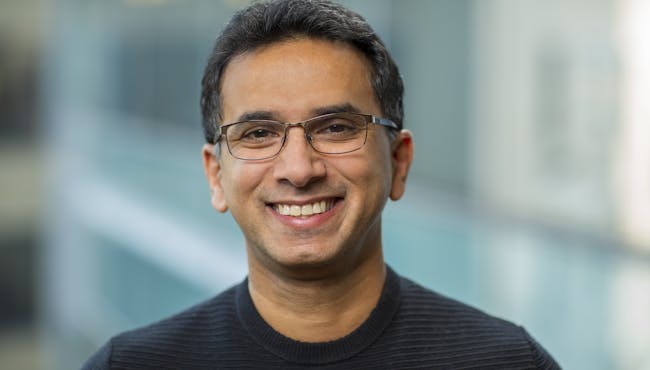
Rushdy Ahmad, Ph.D. is the Director of the Wyss Diagnostics Accelerator (Wyss DxA) at Harvard’s Wyss Institute, where he leads efforts to accelerate the discovery and translation of life-saving diagnostics. With over 20 years of experience as a biomarker hunter, his work is deeply rooted in a personal mission shaped by three powerful drivers: women’s health, infectious disease, and child health.
That mission began in childhood. During the Bangladeshi war of independence, Rushdy, an infant, his mother, uncle, and baby brother fled through rice and paddy fields under the cover of night to India. Both Rushdy and his brother became gravely ill during their escape, and survival came only through the care of a compassionate doctor—who through privileged access, was also the physician to the President of India. Though too young to remember the ordeal, the story was etched into family memory and became formative in shaping his purpose. Growing up in Bangladesh, he saw firsthand the impact of health inequities—especially among children and women. A housekeeper’s battle with tuberculosis (TB) left a lasting impression, as did the work of his mother, an academic historian and fierce advocate for women’s rights, and his maternal grandmother, the first female gynecologist in her region.
These early influences continue to drive his work today. After earning his Ph.D. in experimental particle physics from Brown University and contributing to the Nobel Prize-winning resolution of the solar neutrino problem, Rushdy made a pivotal decision. Following the death of his father-in-law from lung cancer shortly after the birth of his first child, he left a career in software engineering to devote himself fully to biomarker discovery and translational diagnostics. His postdoctoral training at Boston University School of Medicine and subsequent work at the Broad Institute of MIT and Harvard allowed him to master clinical proteomics across a wide range of diseases.
Since joining the Wyss Institute just before the COVID-19 pandemic lockdown in March 2020, Rushdy has helped lead the global response as head of the direct-to-consumer diagnostics group at the Mass General Brigham Center for COVID Innovation. He went on to establish the Brigham-Wyss DxA and its Industrial Participant Program (IPP) in 2021, followed by the launch of the Biomarker Discovery Laboratory (BDL) in 2022.
Through these initiatives, he continues to help translate molecular insights into diagnostic solutions that can also reach underserved populations—always guided by the belief that science must serve those who need it most. For Rushdy, diagnostic innovation is not just a professional calling; it is a personal obligation shaped by history, family, and the urgent needs of the present.
